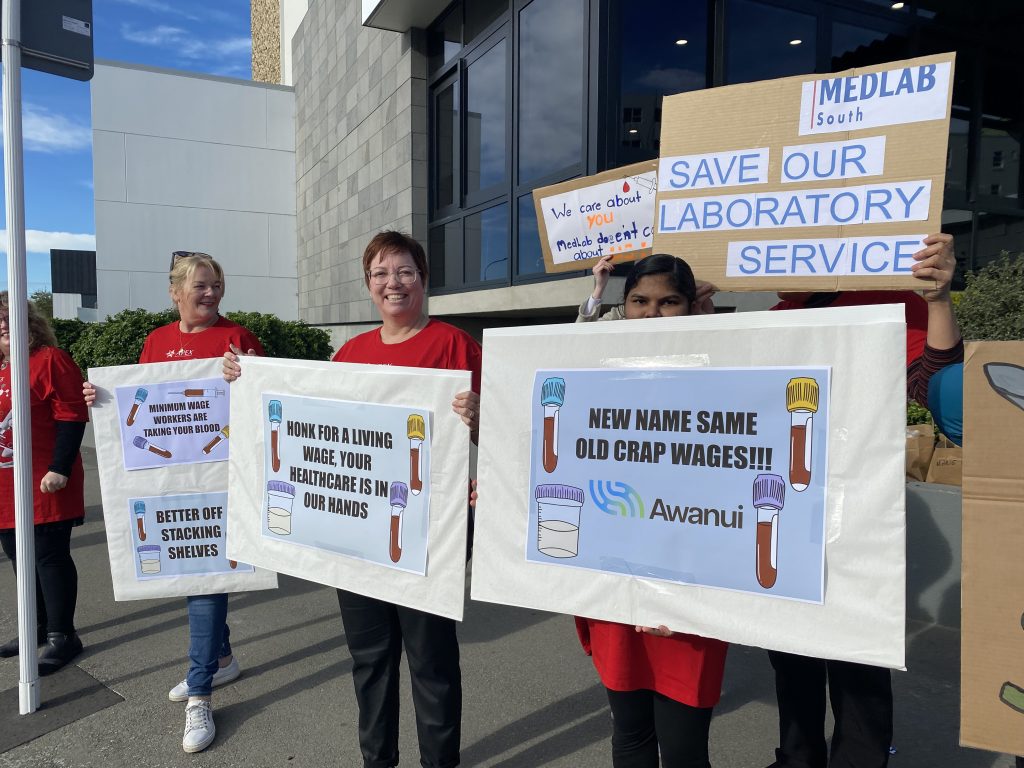
Far from bleeding hearts, for some of South Canterbury’s phlebotomists and technicians they simply want to be paid more than minimum wage.
Union representative Grant Cook said employer MedLab South was spending a lot of money rebranding the organisation to Awanui — and recently had more than $40 million in dividends for shareholders.
Yet, when the minimum wage was raised in April to $22.70 per hour, employees at the company on minimum wage received a congratulatory message advising them they had received a pay rise to the new legal minimum, he said.
Before the nurses’ recent pay rise by the government, laboratory staff were paid equivalent to nurses, Mr Cook said.
‘‘But now we are $25,000 behind.’’
Some people were also confused about who their boss was, as — unlike most of the hospital staff — the laboratory had been privatised two decades ago, he said.

‘‘We are losing people through retirement, and there is no real incentive for young people to join up.’’
Finding staff was impossible, some leaving after only working a few months because of the conditions, Mr Cook said.
Staff struggled with an increased workload and increased expectations alongside low wages and inflation.
Laboratory staff were entrusted to make cancer diagnoses and work out if patients had sepsis, meningitis, a drug overdose or a heart attack, among other things.
They made 70% of diagnoses in the hospital and 100% of all cancer diagnoses.
While it was an interesting job, he would not be encouraging his children to follow his line of work, he said.
Touted as heroes during the pandemic, including mentions by the previous prime minister and the former director-general of health Dr Ashley Bloomfield, they felt forgotten, he said.




